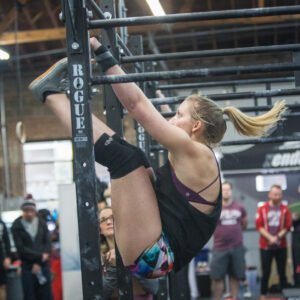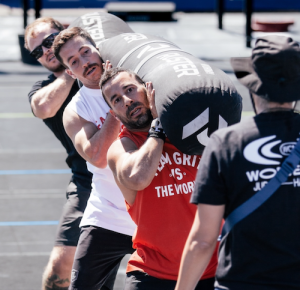We’ve all been there. You come into the gym feeling tired and run down, and the day’s programming calls for a 1RM back squat. Should you swap days around and do something different? See how your warm-up sets feel and go from there?
It’s competition season in CrossFit, so you may see more people than usual writing out spreadsheets of split times on mini-whiteboards. But what happens when you start missing those target splits?
In a sport like CrossFit, the skills of racing and improvising are essential. Rarely does a detailed workout pacing plan survive past the first few rounds of a long AMRAP.
Athletes need to be able to extract the relevant information from their plans and “metcon mathematics” to make better decisions in workouts — rather than hoping to come up with the mythical perfect splits that they can execute to perfection.
Episode 93 of the Legion Strength and Conditioning podcast dives into the details of planning workouts, split times, and pacing. Listen and learn more about developing the skill of improvising, how training with others makes you better at racing, and how prescribing split times can create learning experiences in training.
Listen Here:
- If you’re enjoying the show, why not leave a review? It makes a difference in terms of other people finding the show.
Show Notes:
- [1:10] The compounding effects of athletes practising decision-making in workouts
- [2:00] The importance of being flexible with your plans for workouts
- [5:25] How to develop the skill of improvising
- [8:00] If you can execute your plan perfectly, you might not be going hard enough
- [8:45] Looking back at split times is more useful than planning them ahead of time
- [10:15] “Training” split times versus “racing” split times
- [12:10] Using target splits to give athletes a specific stimulus
- [14:50] When to use “start slow and speed up”-style workouts
- [16:40] Adapting the plan in live competition
- [18:30] Practicing adapting to the unexpected while training with others
- [21:10] The value in jumping into training with others whilst on an individual plan
- [22:15] Getting athletes to make better decisions over time — rather than worrying about avoiding mistakes






